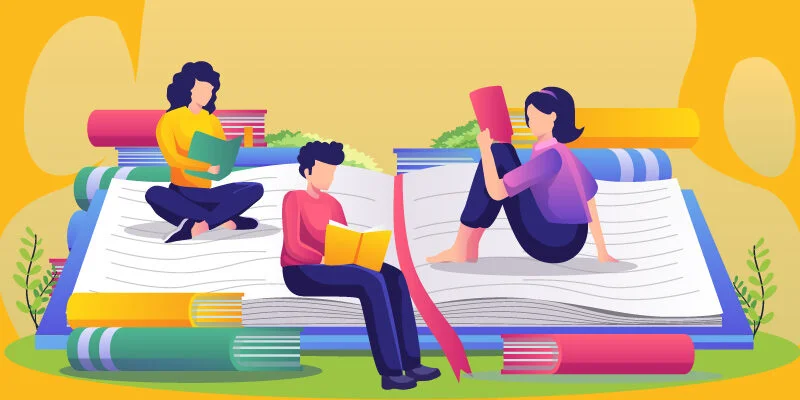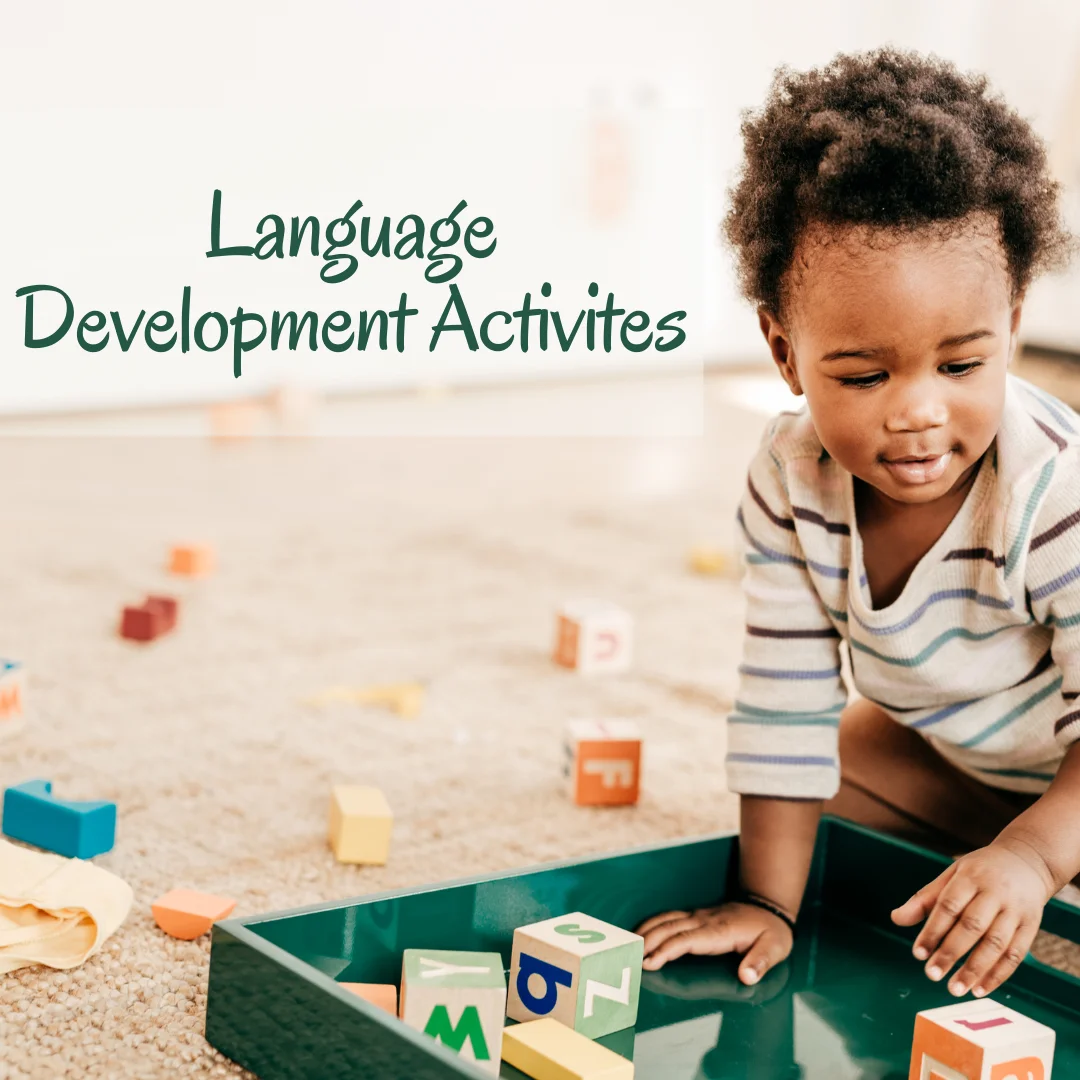Why It’s Important to Have Language Development Activities for Kids
Language development activities are vital in children as they build their basic skills, which they need to depend on throughout their lifetime. During the early years of their life, young children should, therefore, be encouraged to read aloud, sing songs and play interactively to get rich words into their vocabularies and understand how language is structured.
Cognitive abilities are also enhanced by these activities besides which social development takes place resulting from teaching a child how to express his or herself and understand others. In addition, shared reading, writing and word games among others are necessary literacy skills that further develop critical thinking and problem-solving skills in school-aged children who are the most important factors for academic success.
Importance of Language Development Activities for Teens
Secondly, language development activities are very crucial during the teenage years since this period has advanced cognitive, social and academic skills. For example, literature discussions, journaling and debating assist teenagers to learn how to analyse critically and express themselves accordingly, hence transforming their lives forever.
The activities help with understanding and expressing complex ideas which are important for success in high school and beyond. In addition, the involvement in debating and public speaking builds self-assurance as well as good communication skills that prepare teenagers to become future leaders.
Moreover, learning another language at this stage not only widens their cognitive flexibility but also raises their cultural awareness making them more suitable for our globalized world. The mentioned activities ensure that teens will be ready to face challenges of higher education and professional life.
Importance of Language Development Activities for Adults
For adults, language development activities are still relevant because they contribute to both career development and personal happiness. Professionally, reading professional journals, attending workshops or developing writing skills helps adults remain competitive at work places hence succeed in their careers.
These activities make it possible for individuals to communicate effectively, analyze information logically and structure thoughts properly when presenting them. Socially it is a good idea to engage in book clubs or Toastmasters among other things since this will help one develop communication skills or extend a professional network.
On the other hand, adult learners can also be trained through language classes and cultural immersion programs that are of lifelong learning. This way, they experience personal change and learn to understand various cultures and perspectives.
While adults keep improving their language skills, cognitive sharpness is maintained as they remain intellectually active thereby enhancing their quality of life.
For Different age groups
Different age groups present quite a varying pattern for developmental activities in languages due to the different cognitive, social and linguistic demands peculiar to each stage. These are some examples of adapted activities for children, teenagers or adults.
Children (Ages 2-12)
Early Childhood (Ages 2-5):
- Read aloud often: Regularly read picture books to kids. Through this guideline, the vocabulary as well as the ability to comprehend improves.
- Songs and rhymes: Teach children nursery rhymes which help them develop phonemic awareness.
- Storytelling: Allow children tell stories using picture books or props. This will encourage narrative skills development and imagination growth
- Interactive play: Use educational toys and games such as those that require following instructions or naming objects or role playing etc., to promote Language use
- Conversations: Frequently ask open-ended questions during conversation
Middle Childhood (Ages 6-9):
- Shared Reading: Read section books together and discuss the characters, story and new words.
- Writing Activities: Get children to write their own stories, letters or entries in a diary. Issue prompts where necessary.
- Word Games: Play games like Scrabble, Boggle or Pictionary to bring out the fun of learning new words.
- Class Presentations: Let them conduct brief presentations on topics they love to help build confidence in public speaking.
- Language Apps: Use language development apps such as those which deal with grammar, vocabulary and reading comprehension.
Late Childhood (Ages 10-12):
- Book Clubs: Start book clubs where children can be able to share about books read thus enabling critical thinking and discussion skills.
- Creative Writing: Encourage writing poems, short stories or plays. Give back comments that will perfect their writing skills.
- Debate Clubs: Arrange for debates on different topics so as to enable children learn how to form arguments and speak clearly.
- Advanced Word Games: Indulge in more advanced word games and puzzles that enrich vocabulary and knowledge application
- Multilingual Exposure: Inculcate some basic features of a second language through fun activities that ignite interest in language acquisition.
For Teens (Age 13-19)
Reading and Discussion:
- Literature Clubs: This will involve forming group to read novels and discuss them in terms of themes, characters and other literary devices.
- News Analysis: Here, students are expected to talk about news articles and current events that enhance critical thinking as well as vocabulary related with real world situations.

Writing Enhancement:
- Journaling: Students are told to write journals everyday expressing their thoughts as well as what they have gone through or personal opinions about specific prompts to develop expressive writing skills.
- Creative Projects: The activity requires learners to complete different projects such as writing short stories, poems, plays and films.
- Research Papers: They guide teens who would like to craft a research paper on a particular issue of concern while considering the organization of ideas, argumentation and referencing
Public Speaking and Debate
- Speech Competitions: They are expected to organize or participate in speech competitions which helps them build public speaking skills.
- Debate Teams: Participants can either join or form debate teams where they can practice structured argumentation thereby improving their critical thinking abilities

Language Learning:
- Foreign Language Study: It is highly recommended for kids who wish to study second languages other than English through various ways like taking classes after school, using mobile applications or participating in educational trips abroad.
- Cultural Exposure: People should use movies, music or books from different countries so that they may be aware more about others’ cultures.
Adults (Ages 19+)
Advanced Reading and Discussion:
- Book Clubs: Join or establish book clubs to have literary discussions that foster critical thinking and talking.
- Professional Journals: Keep current with your specialized vocabulary by reading and discussing articles from professional journals in your field.
Writing and Professional Communication:
- Professional Writing: There are writing workshops where people can attend to polish up their skills on report writing, email composition or any other kind of document they are expected to prepare in a professional capacity.
- Creative Writing: Take part in creative writing via workshops, writers’ groups, or individual projects for the purpose of retaining and enhancing one’s expressive abilities.
- Journaling: Keep a journal for purposes of reflective writing as well as personal growth.

Public Speaking and Networking:
- Toastmasters: Get involved in organizations like Toastmasters which provides an opportunity for practicing public speaking along with leadership skills development
- Networking Events: Attend industry conferences, seminars, and networking events to hone professional language and communication skills.
Lifelong Language Learning:
- Language Classes: Enroll in language classes to learn new languages or enhance proficiency in a second one.
- Cultural Immersion: Go traveling abroad or get engaged with cultural communities for learning how to use language practically while away from home
- Language Exchange: Participate in conversation programs where two individuals teach each other their own languages through constant practice
General Tips for All Ages
- Curiosity’s Push: A passion for reading and learning should be encouraged by a thirst for learning and curiosity about new issues.
- Be Good at Language: By using appropriate language in our daily interactions, we can help others to learn it too.
- A Broad Vocabulary Environment: English rich environment is created if students are surrounded with books, educational media, and interesting conversations.
Conclusion
This develops as an individual gets older. Therefore by designing developmentally appropriate activities that improve vocabulary, comprehension skills, and communication skills the right way. For children early reading, telling stories and interactive play lay the groundwork for language growth.
Adolescents benefit from more intricate reading materials, narrative writing as well as debate classes that polish their critical thinking along with expression skills. Adults may still polish their language abilities through professional writing, public speaking and lifelong learning programs.
It means encouraging curiosity, modeling good linguistic behavior and providing a rich verbal environment at all stages of life to foster continued language development.
What are some effective language development activities for infants?
Reading books out loud, singing, telling stories, interactive playing and talking in a more free manner always works well with a toddler.
How can I help my elementary school child improve his/her vocabulary?
Joint reading materials such as novels, writing activities, phrase games, classroom presentations and educational apps for languages can go a long way into improving your children’s vocabulary.
Which activities would support the language development of teenagers?
Lot of informative circles written In magazines as descript weekly essays by pupil on the same themes; making projects on arts; taking part in debates or speech competitions; having foreign languages taught to them; watching movies and other media about their culture.
How can adults continue to develop their language skills?
Belonging to book clubs where people read together and discuss the books they have chosen, subscribing to professional periodicals dealing with one’s area of expertise, writing articles for scientific journals which are later reviewed by colleagues before getting published in print or online versions after receiving permission from editors – all these steps are aimed at helping adults maintain their level of competence or even improve it somewhat if necessary.
What are some general tips for fostering language development at any age?
Showing an interest in others’ thoughts/ideas/opinions/questions helps build language skills effectively; using good language models helps children become better speakers/writers/readers/thinkers; creating a literacy-enriched environment with lots of books, educational media (videos) and talkative parents fosters learning through spoken communication.

Russell F. Jones, holding a Master in psychology from the University of Florida. He writes for Smart Parent Solutions, offering practical advice on parenting and child development. His engaging content helps parents navigate family life with confidence and ease. Russell enjoys sharing his knowledge and spending quality time with his family.
